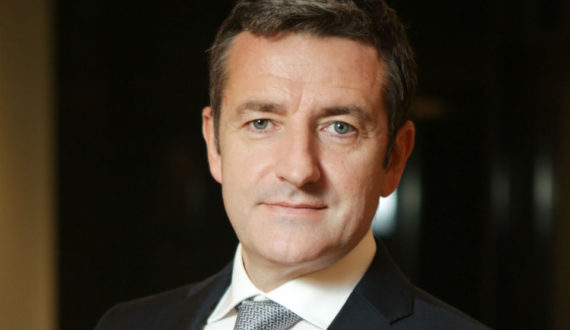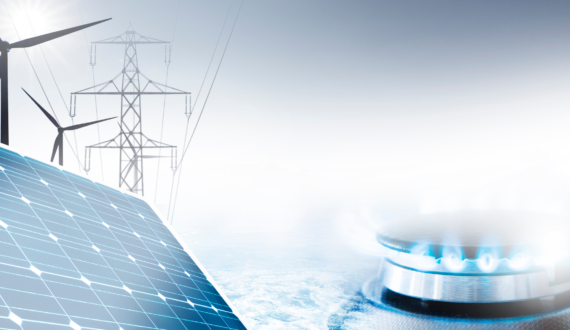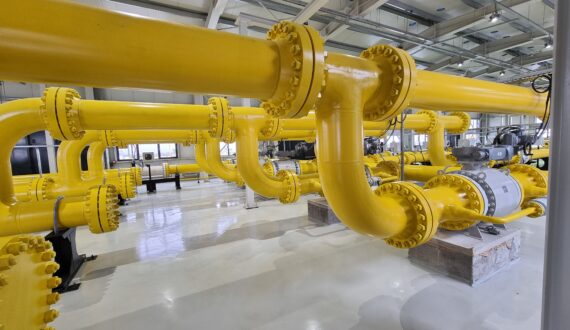Today, energy is more than a necessity. It has become a precious, primary resource, which has made our lives a lot easier, giving us mental and physical comfort, and without which modern life would not exist. Because technology has advanced so much for the benefit of people and consumerism has grown, our planet is suffering, and many resources are nearing depletion. Therefore, in order to help the planet and to maintain the lifestyle we have become accustomed to, it is important to make intelligent use of all the resources we have at our disposal, especially energy, through efficient consumption, which is both for our benefit, as well as for the planet we live on.
What does smart energy consumption mean?
Intelligent energy consumption primarily involves the installation of intelligent electricity metering systems, both for domestic and industrial consumers, which measure real-time consumption, ensure secure two-way transmission of information between customer and distributor, provide signals alarm in case of failure to the central system, using forms of electronic communication, which helps a faster management of possible problems. These systems include smart meters, information transmission subsystems and meter information management subsystems.
The 6 benefits of smart power consumption
Using a smart meter means a lot for energy efficiency and cost reduction and has a number of benefits.
- You can control and monitor consumption and have the chance to reduce it where possible.
- The index is transmitted automatically and in real time, thus eliminating the estimation invoices.
- The risks of overvoltages are reduced and damages can be resolved more quickly.
- Those who are prosumers can separately measure energy produced from renewable sources such as photovoltaic panels or wind turbines.
- Even if you have such systems in your home that help you measure and adjust your consumption, you must also take into account the efficient consumption of energy, in order to reduce waste and at the same time costs.
- Energy efficiency means the ways in which we can reduce consumption without giving up the comfort we have become accustomed to and make major sacrifices.
Thus, in addition to installing intelligent energy metering systems, here are some tips that would help you be responsible and efficient, consume less energy and help protect the environment.
How to reduce energy consumption?
-
- Replace all incandescent bulbs with economical ones, fluorescent or LED, which consume five times less energy (eg replacing a single 60W bulb with an energy efficient 18W bulb, which is on for 10 hours a day, can save easily about $ 1 or more each month, multiply that by a whole year and hundreds (if not thousands) of light bulbs in your home / office buildings / factories / and see the result. Facts: Did you know that 15 % of the electricity bill is the consumption of lighting with classic light bulbs? Recycle the classic light bulbs you changed by offering them to specialized companies or leaving them in specially arranged places.
- Use as much natural light as possible and only turn on the light when needed, both at home and at work.
- Before leaving home or work, do not forget to turn off all light bulbs, stating this to family members or colleagues.
- Install outside the house, in the heavily circulated areas of buildings, factories, a motion sensor, which turns on the light only when it detects movement. Facts: you can save almost 20% of your house / building or factory’s energy bill. Analyze how much household appliances, electronics, industrial machines consume etc. and replace them, if necessary, with some of the higher energy class (A, A+, A++).
- Install solar or LED street lighting systems.
- Household appliances are marked with the EU unitary energy label. “A” means that the appliance has a low power consumption and class “G” represents a very high energy consumption. The electronics also consume power in standby mode (the LED on means that the appliance continues to consume electricity). Unplug power-consuming appliances when not in use for a longer period of time to avoid standby consumption. You can use programmable or extension sockets with a switch to easily disconnect devices that have the stand-by function.Facts: The TV, computer or any other electronic device left on standby consumes between 40% and 70% of the energy it would consume if it were turned on.
- Use the washing machine only when enough clothes have been gathered. A washing machine reduces its electricity consumption by a third if you use a washing program at 40 ° C instead of 60 °
- Avoid using the tumble dryer as much as possible – a drying cycle can use twice as much energy as a washing cycle.
- Install programmable thermostats and use them intelligently. A programmable thermostat gives you the power to automatically adjust the temperature at work and at home when no one is around. Set the temperature to 30/60 minutes before arrival at the office / home and off before departure.
Also, if you want to build a house / office building, you should know that today, buildings considered energy efficient consume 75% less energy than an ordinary house or office, saving considerable amounts of money. Remember that it is much easier to consider the low energy consumption factor from the beginning of building a house.







